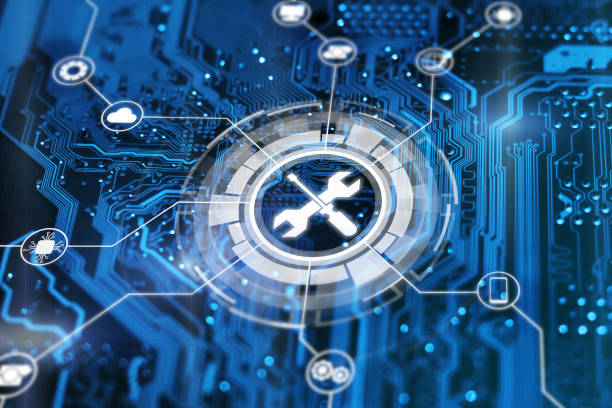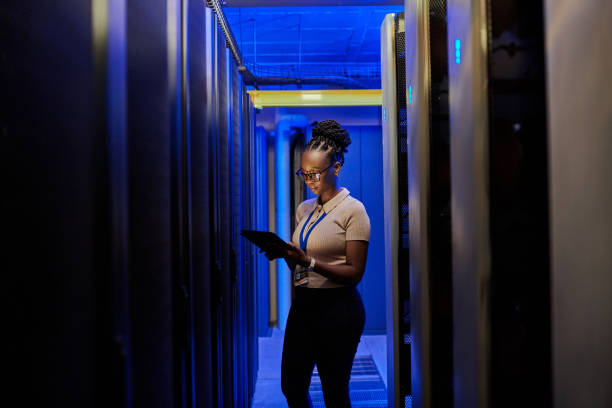Transforming Guest Experiences: The Evolution of Hospitality Management Systems
In the dynamic world of hospitality, where guest expectations continuously evolve, the role of advanced technology has become increasingly pivotal. The hospitality management system (HMS) stands as a cornerstone of this transformation, offering solutions that not only streamline operations but also enhance the overall guest experience. This comprehensive exploration delves into the intricacies of hospitality management systems, highlighting their functions, benefits, and future trends.
The Foundation of Hospitality Management Systems
At its core, a hospitality management system is designed to integrate various aspects of hotel and service management into a unified platform. This integration covers reservations, front desk operations, housekeeping, billing, and beyond. By centralizing these functions, HMS solutions provide hoteliers with a powerful tool to manage day-to-day operations efficiently, ensuring a seamless experience for both staff and guests.
Modern HMS platforms are built on sophisticated software architectures that allow for real-time data processing and management. This real-time capability is essential in today’s fast-paced hospitality industry, where timely and accurate information is crucial. The system’s ability to integrate with other technologies, such as property management systems (PMS), point of sale (POS) systems, and customer relationship management (CRM) tools, further enhances its effectiveness.
Streamlining Operations with Advanced Features
One of the primary advantages of a contemporary hospitality management system is its ability to streamline operational processes. From managing reservations and guest check-ins to handling room assignments and maintenance requests, HMS platforms automate numerous tasks that were traditionally manual and time-consuming. This automation reduces the likelihood of errors and frees up staff to focus on providing exceptional guest service.
Reservation management is a critical component of HMS solutions. Advanced systems offer features like real-time availability updates, automated booking confirmations, and dynamic pricing. These features not only simplify the booking process for guests but also optimize revenue for hotel operators. Additionally, integrated channel management capabilities ensure that room availability is synchronized across multiple booking platforms, reducing the risk of overbooking.
Front desk operations benefit greatly from HMS technology. The system enables efficient check-in and check-out processes, manages guest profiles, and tracks special requests. By providing staff with instant access to guest information and preferences, the HMS enhances personalization and allows for tailored guest experiences. For instance, if a guest has a history of requesting a specific type of pillow or room setup, this information can be readily accessed and acted upon, leading to a more memorable stay.
Housekeeping management is another area where HMS platforms make a significant impact. By automating housekeeping schedules and room status updates, the system ensures that rooms are cleaned promptly and maintained to high standards. Housekeeping staff can receive real-time notifications about room status changes and special instructions, which helps in managing workloads and improving efficiency.
Enhancing Guest Experience Through Personalization
The shift towards personalization in the hospitality industry has been greatly facilitated by advancements in HMS technology. Modern systems collect and analyze vast amounts of guest data, enabling hoteliers to tailor their services to individual preferences. This data-driven approach not only enhances guest satisfaction but also fosters loyalty and repeat business.
Personalization begins with the initial booking process. An HMS that integrates with CRM tools can track guest interactions and preferences, allowing for personalized communication and offers. For example, a guest who frequently stays at a hotel for business purposes might receive targeted promotions for extended stays or upgrades to executive suites.
During their stay, guests benefit from personalized services that are informed by data gathered through the HMS. From customized room settings to personalized welcome amenities, the system’s ability to anticipate and respond to guest needs enhances the overall experience. For instance, if a guest prefers a particular type of beverage or dietary requirement, the HMS can flag these preferences, ensuring that they are addressed proactively.
Post-stay, the HMS continues to play a role in maintaining guest relationships. Automated follow-up communications, such as thank-you emails or surveys, allow hotels to gather feedback and address any issues promptly. This ongoing engagement helps in building lasting relationships with guests and encourages positive reviews and referrals.
Leveraging Data for Strategic Decision Making
One of the most powerful features of a hospitality management system is its ability to generate and analyze data. The insights derived from this data are invaluable for making informed business decisions and driving strategic planning. HMS platforms provide detailed reports on various aspects of hotel operations, including occupancy rates, revenue performance, and guest demographics.
Revenue management is a key area where data analysis can drive significant improvements. By analyzing historical booking patterns, seasonal trends, and market demand, hoteliers can implement dynamic pricing strategies that optimize revenue. Advanced HMS platforms offer tools for forecasting demand and adjusting pricing in real-time, helping hotels to maximize profitability.
Operational efficiency is another area where data-driven insights prove beneficial. By examining metrics such as average check-in times, housekeeping turnaround times, and staff performance, hotels can identify areas for improvement and implement targeted strategies to enhance efficiency. For example, if data reveals that check-in times are consistently high during peak periods, hotels can explore ways to streamline the process or adjust staffing levels accordingly.
Guest feedback and satisfaction metrics are also critical for driving improvements. The HMS collects and analyzes feedback from guest surveys, online reviews, and social media interactions. By identifying recurring themes and areas of concern, hotels can make informed decisions about service enhancements and address issues proactively.
Integration and Future Trends in Hospitality Management Systems
The future of hospitality management systems is marked by ongoing advancements in technology and integration capabilities. As the industry continues to evolve, HMS platforms are expected to incorporate new features and functionalities that further enhance operational efficiency and guest experiences.
One notable trend is the integration of artificial intelligence (AI) and machine learning into HMS platforms. AI-driven chatbots and virtual assistants are becoming increasingly common in the hospitality industry, providing guests with instant support and information. These technologies can handle routine inquiries, assist with booking modifications, and provide personalized recommendations based on guest preferences.
The Internet of Things (IoT) is another area of growth for HMS technology. IoT-enabled devices, such as smart thermostats, lighting systems, and in-room entertainment options, are being integrated into hospitality management systems. This connectivity allows for seamless control of room environments and enhances the overall guest experience. For example, guests can use their smartphones to adjust room settings or request services, providing a higher level of convenience and personalization.
Cloud-based HMS platforms are gaining popularity due to their scalability, accessibility, and cost-effectiveness. Cloud solutions enable hotels to access their management systems from anywhere, facilitating remote management and providing flexibility for multi-property operations. Additionally, cloud-based platforms often offer regular updates and improvements, ensuring that hotels benefit from the latest features and security enhancements.
Conclusion
In the ever-evolving landscape of the hospitality industry, the role of hospitality management systems is more crucial than ever. By integrating various operational functions, enhancing guest personalization, and leveraging data for strategic decision-making, HMS platforms are transforming how hotels operate and deliver exceptional experiences. As technology continues to advance, hospitality management systems will undoubtedly play a pivotal role in shaping the future of the industry, driving innovation, and setting new standards for guest satisfaction and operational excellence.




